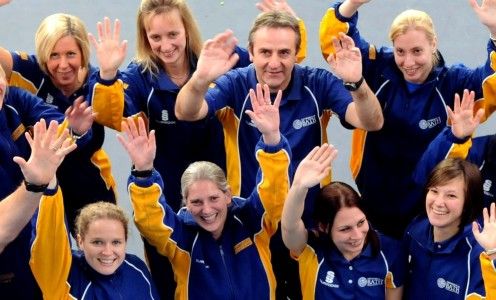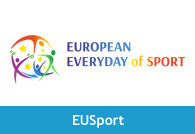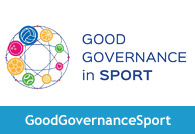NEWS

BSDA is partner in project MOST

13.12.2017
The aim of project MOST – Mobility of staff is to encourage the cooperation between the administrative sports bodies at the national and local levels. Additionally educate staffs who perform duties of administrational representatives of sports clubs and associations. Fight for the jobs on a training position “administrator in sports” that belong to competent people with the experience in the sport.
This project aims to encourage the administrative staff of sports organizations in a proactive way. Administrative staff in sports organizations is not only the "administrator", it is much more than that. With the project activities and exchange of the experiences administrative staff will be additionally educated on how to connect the sport with the other industries (e.g. tourism) which may bring the additional benefit to the sport, how to develop marketing activities, what opportunities are provided by the EU through co-financing of various programmes (especially related to the Erasmus + Sport Programme). Special emphasis will be on the education on how to connect the administrative staff with the scientists dealing with the problem of sport. A typical example is a whole range of undergraduate, graduate and doctoral dissertations dealing with different issues in sport, but that remain unused after the scientist published work or dissertation.
In modern world sport is a very important factor which exerts an influence to overall development. People joining into groups to achieve goals and needs of individuals is inherent to sport and makes it a striking representative of those activities in which without solidarity and relationship these is no possibility of action.
European Union is committed to achieve: The Communication on Sport, European Council Declaration, The White Paper on sport, Good Governance in sport, Gender equality in sport etc.
In recent years, sport is experiencing serious changes, very often unpleasant, due to the rise in corruption, crime, match-fixing, doping, betting etc. On the other hand sports organizations at all levels (from local to national level) typically base their administrative activity on volunteer staff, which is additionally burdened by an array of laws, regulations, ordinances and the like in relation to the functioning of the sport which makes sports organizations unable to cope. The whole situation is further aggravated by the fact there are very few professionally trained administrative staff. The reason for this is that there is no appropriate professional education, study or informal forms of learning, and even if it exist, generally is too expensive for sports organizations or individuals.
People in sport, which are in managerial or administrative functions, must be familiar with management of sports organizations, sports marketing, human resource management, management of sports facilities, organizations of sports events, finance, sport law etc. Therefore, the exchange of experience and best practices that will be shared by the participants at the meeting, workshops and round table, is of great importance not only for the present participants, but also for all other stakeholders in the sport, both professional and amateur sport and all local, regional and national sport organizations. It is important to bear in mind that the proposed measures will continue to encourage voluntary work in sport, promote the inclusion of more women and people with disabilities in the management structure of sports organizations at local, regional and national level.
It was crucial for this project to choose a partner country, which has defined their local problems, and are ready to work on finding a solution. Partners involved in the project belong to different economic, social and political systems, which creates a good base for quality of exchange of experience.
By selecting these partners, we will have insight into situations in countries with different social, economic and social environment, which provides us with a guarantee that the result achieved will be able to spread to other EU countries.
Sport is burdened with an array of laws, regulations and decrees. In addition, in most European countries the is no systematic solution for education and vocational training of administrative staff and managers, which creates serious problems in the functioning of the sport and the execution of the basic tasks in sport which are to bring sport closer to people of all ages, especially young people. Sweden is an excellent example of well-organized education for administrative staff and managers, and their experience will be of particular interest for partner countries and beyond.
Sport is not only about top sports results, but rather it is a culture of living, raising awareness about the importance of sports and recreational activities. Under the influence of interest groups (managers, betting organizations etc. and strong presence of media), an impression has been made that only top sports results are valued in society.
Therefore, it is important that sports administration is efficient, transparent so it can in timely manner spot problems, propose solutions and conduct control.
Collaborative partnership between this project partners will not only enable transfer of experiences, good practices and innovative solutions among partners, but will also give the project greater relevance when addressing regional and national policy makers.
This is further supported by the development of report with project activities and conclusions to encourage changes that will enable better and more efficient work of administrative staff, comparing and applying existing legislation, rules and regulations that define the sport at each project partner countries.
The added value of the project at the European level is in the following:
• Stronger emphasis on the role of sport administration staff;
• Innovative approach in the support to administration staff and others and streamlining their access to adequate information;
• Building closer ties and stimulating synergy of the partners;
• Stakeholder consultations are encouraged to create functional models of cooperation at national and local levels;
• Support of the national and European policies and strategies in the field good governance in sport
• Improving cross-border cooperation and transnational impact;
• Dissemination and elaboration of best practices;
• Gender equality and inclusion of persons with disabilities;
The project results will be transferable at the EU level for the following reasons:
• The network of stakeholders developed in each country will ensure maximum transfer of knowledge and expertise at wider EU level. The summary of the project outputs will be in English and will be available in the EU countries to be easily implemented in the future work of EU organizations on promoting mobility and education of administrative staff. The main results will be freely available through the both: the project’s web platform and web pages of all project partners at the disposal of the interested parties;
• Promoting best practices and transferring knowledge in working with administrative staff;
• Advocating initiatives which support mobility and education of administrative staff;
• Sharing our experience of challenges and opportunities in order to learn from each other;
• Supporting the additional professional development of project partners;
• Promoting innovative aspects of the project non-formal education which can easily be implemented in any EU country.
The European Union tends to create a common platform for certain activities. Sport belongs to the category of extremely important social activities, but when it comes to education and non-formal education there are very few opportunities, are often too expensive. Large parts of the administrative staff are volunteers. On the other hand a series of legislative frameworks, rules, regulations, guidelines complicate the work of administrative staff. Therefore, the creation of such common platform is of a special importance for the European policies.
Project partners are characterized by a diversity of regulations, standards, unwritten rules of functioning of the sports administration, and the joint cooperation and jointly produced results contribute to a better and more efficient management. The partnership was created in such a way that each partner is important for achieving the planned results.
R1 – Best practices will be selected and established as base for development of innovative non-formal education and training. It is not possible to implement this activities in just one country because of defeasibility of outputs. Partners will give inputs with documentation developed in their own countries. The partners will develop working materials, which will be used for non-formal education of administration staff. All project team members are persons with extensive experience in working in sports organizations at all levels (national, regional and local). Very well known for their management system in sport, sport finance, legal framework, given that they face the problem of sports administration.
It is important to stress that project partners have great experience in developing education for different target groups (including e learning) which ensures high quality working materials applicable in all EU countries.
R2 - This project educates and informs other sport organisations and associations. These events will be organized in different places (clubs, national sport federations, Olympic committee) and these actions will be visible in whole Europe. Multiple diversity of administration staff such as age, nationality, gender, different sport groups and different languages is EU added value.
R3 – This project will educate and inform stakeholders through project website, project partners web site, EACEA dissemination platform and social media (Facebook). This result would not be possible in one project partner country solely in economic way. In this way broad base of administration, managers and local, regional and national sport authorities will be educated, informed and motivated to participate in this activities.
R4 – Administrative staff will be established to develop innovative education and training. They will cover the most of sport groups; share their experience of work in different countries with specific culture and way of living. They will consult each other what attitude to take toward other administration staff and manager in order to achieve the best result in project.

 Български
Български






























